Photo by onur mumcu from FreeImages
"Out of the ground the Lord God caused every tree to grow that is pleasing to the sight and good for food; the tree of life was also in the midst of the garden, and the tree of the knowledge of good and evil." (Genesis 2:9)
"The one who has an ear, let him hear what the Spirit says to the churches. To the one who overcomes, I will grant to eat from the tree of life, which is in the Paradise of God." (Revelation 2:7)
This lesson explains the original purpose of the tree of life, where the tree of life is now, that we overcome the world through faith in Christ, and that Jesus will grant to eat from the tree of life.
Consider. What was the original purpose of the tree of life in the garden of Eden? Why did God later prevent Adam from eating of the tree of life?
1. The Original Purpose of the Tree of Life
The original purpose of the tree of life was to preserve life. The tree of life was a special tree in the garden of Eden that God provided for the purpose of preserving life. Genesis 3:22 tells us if Adam had stretched out his hand and taken from the tree of life and eaten its fruit that he would have lived forever.
However, Adam lost access to the life-giving tree of life. Why? Adam sinned against God by disobeying God's command not to eat from the other special tree in the garden, the tree of the knowledge of good and evil (Genesis 2:9, Genesis 2:16-17, Genesis 3:6-7). After Adam had sinned, God drove him out of the garden of Eden. God stationed cherubim [angelic beings, Ref. 1] to guard the way to the tree of life (Genesis 3:24). God is merciful in that he prevented Adam (and prevents us as Adam's descendants) from living forever in a state of disobedience and sin. 2. Where is the Tree of Life Now?
The tree of life now is in the Paradise of God (Revelation 2:7). Paradise is where believers will be with Jesus after death. This is the same Paradise that Jesus spoke about to the penitent thief on the cross. "Truly I say to you, today you will be with Me in Paradise" (Luke 23:43; "Paradise, Jesus, and the Penitent Thief" -- Ref. 2).
In the future heavenly holy city, new Jerusalem (Revelation 21:1-2, Revelation 21:10), the tree of life will be on both sides of the river of the water of life (Revelation 22:1-2, Ezekiel 47:12). 3. We Overcome the World through Faith in Christ
In Revelation 2:7, Jesus said, "The one who has an ear, let him hear what the Spirit says to the churches. To the one who overcomes, I will grant to eat from the tree of life, which is in the Paradise of God."
Jesus promises he will grant to eat from the tree of life to the one who overcomes. To overcome means to conquer and to come off victorious (HELPS Word-studies, Ref. 3). We overcome the world through faith in Jesus, faith in the One who has already overcome the world. Jesus said, "These things I have spoken to you so that in Me you may have peace. In the world you have tribulation, but take courage; I have overcome the world" (John 16:33). The apostle John confirms that we overcome by faith in God's Son, Jesus Christ. "For whoever has been born of God overcomes the world; and this is the victory that has overcome the world: our faith. Who is the one who overcomes the world, but the one who believes that Jesus is the Son of God?" (1 John 5:4-5). Faith in Christ means believing in, trusting in, and having confidence in Christ (Ref. 4). 4. Eat from the Tree of Life
To the one who overcomes through faith in Christ, Jesus promises to grant (give, Ref. 5) to eat from the tree of life (Revelation 2:7). To eat from the tree of life is a gracious gift from God. Compare Revelation 2:7 with Romans 6:23, "For the wages of sin is death, but the gracious gift of God is eternal life in Christ Jesus our Lord."
Adam, through disobedience to God, lost access to the tree of life. As Adam's descendants, we overcome the world through faith in Jesus, and he will grant us to eat from the tree of life.
Apply. Put your faith in God's Son, Jesus Christ. Believe in, trust in, and have confidence in him. Overcome the world through your faith in Christ, and he will grant you to eat from the tree of life.
Related Lessons
"What is Eternal Life?"(John 17:3) "Paradise, Jesus, and the Penitent Thief"(Luke 23:43) "Biblical Definition of 'The World'" (John 1:10)
References
1. https://biblehub.com/hebrew/3742.htm - Strong's Exhaustive Concordance 2. https://www.scriptureway.com/home/paradise-jesus-and-the-penitent-thief 3. https://biblehub.com/greek/3528.htm 4. https://biblehub.com/greek/4102.htm 5. https://biblehub.com/greek/1325.htm
2 Comments
Consider. Jesus came to be the Great Physician for people afflicted with the greatest disease -- sin. Jesus calls sinners -- then and now -- to repentance.
Read Luke 5:27-32
Jesus Calls Levi (Matthew)
"27 After this he went out and saw a tax collector named Levi, sitting at the tax booth. And he said to him, 'Follow me.' 28 And leaving everything, he rose and followed him.
29 And Levi made him a great feast in his house, and there was a large company of tax collectors and others reclining at table with them. 30 And the Pharisees and their scribes grumbled at his disciples, saying, 'Why do you eat and drink with tax collectors and sinners?' 31 And Jesus answered them, 'Those who are well have no need of a physician, but those who are sick. 32 I have not come to call the righteous but sinners to repentance.'"
The Luke 5:27-32 scripture includes "tax collectors," "sinners," "Pharisees," and "scribes." A related lesson defines who these people groups were. For an explanation, please refer to "Jesus Receives Sinners - Then and Now" (Ref. 1, Luke 15:1-2).
1. Who needs the Great Physician?
As the spiritual Physician, Jesus gracefully went about his work with the people who needed him the most -- people who were diseased with sin. God draws such people -- then and now -- to Jesus (Luke 15:1). Jesus came to be with sinful people -- people the Pharisees and scribes held in contempt. Jesus conversed with them, instructed them, and called them to repentance (will discuss more in Section 3).
In contrast with the tax collectors and sinners who welcomed Jesus, the Pharisees and scribes did not see their need for Jesus. In their own opinion of themselves, they were free from the taint of sin. Thus, they thought (falsely) that they were well. When a person -- then and now -- thinks they are free from sin, they deceive themselves. "If we say we have no sin, we deceive ourselves, and the truth is not in us" (1 John 1:8).
2. Who does Jesus call to repentance?
Jesus said, "I have not come to call the righteous but sinners to repentance" (Luke 5:32).
Jesus said that he had come to call sinners to repentance. "Sinners," in the Biblical technical sense, are hamartólos, people who miss the mark of what God approves (Ref. 2). That actually includes all of us. "For all have sinned and fall short of the glory of God" (Romans 3:23). In the eyes of the Pharisees and scribes, sinners not only were those with blatant moral problems (such as prostitutes), but also those who did not observe the Pharisees' and scribes' strict and rule-oriented interpretation of the law -- which was most everybody else (Mark 7:5-7). 3. What is repentance?
Jesus said, "I have not come to call the righteous but sinners to repentance" (Luke 5:32, italics added for emphasis).
The biblical definition of repentance means to turn about, to have a change of mind, to express regret (Greek: metanoia, Ref. 2, Ref. 3). Thus, repentance is much more than being superficially sorry for one's sins. Repentance includes a sincere heart change that turns from sin towards God and purposes to lead a more righteous and holy life. The prophet Joel says, "'Yet even now,' declares the Lord, 'return to me with all your heart, with fasting, with weeping, and with mourning; 13 and rend your hearts and not your garments'” (Joel 2:12-13, italics added for emphasis).
God says through the prophet Isaiah, "Turn to me and be saved, all the ends of the earth! For I am God, and there is no other" (Isaiah 45:22). John, the apostle and disciple of Jesus, wrote to believers, "If we confess our sins, he is faithful and just to forgive us our sins and to cleanse us from all unrighteousness" (1 John 1:9). 4. Repentance and belief go together.
Repenting and believing go together. Repentance is integral to our believing in Christ. Note what Jesus said early in his ministry. "Now after John was arrested, Jesus came into Galilee, proclaiming the gospel of God, 15 and saying, 'The time is fulfilled, and the kingdom of God is at hand; repent and believe in the gospel'" (Mark 1:14-15). Not just "repent." Not just "believe." Jesus said, "Repent and believe."
Both repenting of our sins and believing in Christ should be ongoing in our walk with Christ and not just a one-time occasion. Even as believers, when we sin (in thought, word, or deed), we should repent of that sin, receive God's forgiveness already provided for us in Christ's sacrificial death, and continue to walk in the newness of life that God gives us through his Son (1 John 1:9, Matthew 5:21-22, Matthew 5:27-28, Romans 6:4).
Apply. Are you up to date on repenting from any sin that may be affecting your relationship with the Lord? Consider the main principles in this lesson:
This lesson is the second in a series on what "to be saved" means in the Bible. The first lesson described what "to be saved" means in the Old Testament (Ref. 1). This lesson describes what "to be saved" means in the New Testament.
This lesson uses scripture quotations from the English Standard Version (ESV) and the New American Standard Bible (NASB) (Ref. 2).
Consider. What do the words, "to be saved," mean to you? How does a person become saved?
1. "To be saved" in the New Testament means "to be delivered out of danger into safety" and "to be made well or whole."
The Greek word, sózó, translated as saved in Acts 16:31 occurs over 100 times in the New Testament (Ref. 3). Sózó (pronounced sode'-zo) means to deliver, heal, make whole, preserve, and save (Ref. 3). When God saves us, God delivers us out of danger into his provisions (safety).
Items "a," "b," "c," and "d" below provide examples from the New Testament for what it means to be saved.
a. Jesus saves people through storms(1). Jesus saved his disciples when they were afraid
Matthew 8:25-26 -- "And they went and woke him, saying, 'Save us, Lord; we are perishing.' 26 And he said to them, 'Why are you afraid, O you of little faith?' Then he rose and rebuked the winds and the sea, and there was a great calm." (Read the entire account: Matthew 8:23-27.)
(2). Jesus saved Peter when he doubted
Matthew 14:30-31, brackets added -- "But when he [Peter] saw the wind, he was afraid, and beginning to sink he cried out, 'Lord, save me.' 31 Jesus immediately reached out his hand and took hold of him, saying to him, 'O you of little faith, why did you doubt?' " (Read the entire account: Matthew 14:22-33.)
Notice in these examples that Jesus saved them even when they had little faith. Let that thought encourage you and calm you in whatever storm you are going through. b. Jesus saves people when they are lost
Luke 19:8-10 -- "And Zacchaeus stood and said to the Lord, 'Behold, Lord, the half of my goods I give to the poor. And if I have defrauded anyone of anything, I restore it fourfold.' 9 And Jesus said to him, 'Today salvation has come to this house, since he also is a son of Abraham. 10 For the Son of Man came to seek and to save the lost.'" (Read the entire account: Luke 19:1-10).
In Luke 19:10, the Greek word for lost, apollumi (ap-ol'-loo-mee), has a more severe meaning than just needing directions to point the way. Apollumi (being lost) implies to die with the implication of ruin and permanent (absolute) destruction by experiencing a miserable end (Ref. 4). Jesus Christ came to save Zaccheus, you, and me from experiencing ruin, permanent destruction, and a miserable end. c. Jesus saves suffering people and makes them well (healed and whole)
The Greek word sózó which means save also means make well, heal, and restore to health (Thayer's Greek Lexicon, Ref. 3). The New Testament strongly teaches the healing nature of being saved.
(1). Jesus healed the woman with a hemorrhage
Mark 5:33-34, brackets added -- "But the woman, knowing what had happened to her, came in fear and trembling and fell down before him and told him the whole truth. 34 And he said to her, 'Daughter, your faith has made you well [saved you]; go in peace, and be healed of your disease.'" (Read the entire account: Mark 5:25-34.)
(2). Jesus healed Bartimaeus from blindness
Mark 10:51-52, brackets added -- "And Jesus said to him, 'What do you want me to do for you?' And the blind man said to him, 'Rabbi, let me recover my sight.' 52 And Jesus said to him, 'Go your way; your faith has made you well [saved you].' And immediately he recovered his sight and followed him on the way." (Read the entire account: Mark 10:46-52.)
(3). Church elders are to pray for the sick to be restored (saved)
James 5:14-15, brackets added -- "Is anyone among you sick? Let him call for the elders of the church, and let them pray over him, anointing him with oil in the name of the Lord. 15 And the prayer of faith will save [restore] the one who is sick, and the Lord will raise him up. And if he has committed sins, he will be forgiven."
When you are suffering and need healing, seek the Lord Jesus Christ in prayer and faith, and trust him for the results.
d. God will save people who call on him from the day of the Lord and from the wrath of God against sin(1). People who call upon the name of the Lord will be saved from the day of the Lord
The prophet Joel describes the day of the Lord in Joel 2:30-32. In Joel 2:31, he describes the day of the Lord as "great and awesome [where awesome means to be feared]" (Ref. 5). Then, Joel adds "And it shall come to pass that everyone who calls on the name of the Lord shall be saved [delivered, escape]" (Joel 2:32, brackets added; Ref. 6). On Pentecost, the Apostle Peter quoted Joel 2:28-32 in Acts 2:17-21.
"Calling on the name of the Lord" means "to adore and worship" the Lord and "to invoke" [petition, appeal to, and make an earnest request to] the Lord in prayer (Ref. 7, Ref. 8). God has promised -- people who call on him (adore, worship, appeal to, and pray to him) will be saved. When you believe in Christ, the time of his return will be a time of salvation, not a time of fear. Thank God and rejoice in that promise. (2). God will save believers in Christ from the wrath of God against sin
Romans 5:8-10 -- "but God shows his love for us in that while we were still sinners, Christ died for us. 9 Since, therefore, we have now been justified by his blood, much more shall we be saved by him from the wrath of God. 10 For if while we were enemies we were reconciled to God by the death of his Son, much more, now that we are reconciled, shall we be saved by his life."
According to HELPS Word-studies, the wrath of God refers to God's fixed, controlled, passionate feeling against sin (Ref. 9). As believers in Christ, we are justified [made righteous] by the blood of Christ (Ref. 10, Romans 5:9). That is why we who believe in Christ will be saved by him from the wrath of God against sin (Romans 5:9-10). 2. Biblical Principles about Being Saveda. God was so moved by his love for the world that he has already provided the way for the world to be saved
John 3:16 -- "For God so loved the world, that he gave his only Son, that whoever believes in him should not perish but have eternal life."
b. God sent his Son not to judge the world, but that the world might be saved through him
John 3:17 -- Jesus said to Nicodemus, "For God did not send the Son into the world to judge the world, but so that the world might be saved through Him." Nicodemus, a Pharisee (John 3:1), may have been expecting a Messiah that would destroy Israel's Gentile enemies (Ellicott's Commentary on John 3:17, Ref. 11). Jesus came at that time not to initiate the final judgment of the world, but to provide the way for the people of the world -- Gentiles and Jews -- to be saved.
c. For those who believe in Christ, God has saved us from our former life of sin
Romans 5:8 -- "But God demonstrates His own love toward us, in that while we were still sinners, Christ died for us."
Ephesians 2:4-5 -- "But God, being rich in mercy, because of the great love with which he loved us, 5 even when we were dead in our trespasses, made us alive together with Christ—by grace you have been saved." d. God has provided his Son, Jesus Christ, as the only way by which people are saved
Acts 4:10,12 -- The Apostle Peter referred to Jesus Christ of Nazareth when he said, "And there is salvation in no one else, for there is no other name under heaven given among men by which we must be saved."
e. Our only "to do" to become saved is to believe in Jesus Christ, God's Son
Acts 16:30-31, brackets added -- "Then he [the Philippian jailer] brought them [Paul and Silas] out and said, 'Sirs, what must I do to be saved?' 31 And they said, 'Believe in the Lord Jesus, and you will be saved, you and your household.'"
The Greek word for believe means trust in, have faith in, and have confidence in (Ref.12). 3. Salvation Prayer
Apply. If you are not yet a believer in Jesus Christ, tell him you are sorry for all the sins in your life (1 John 1:9), and put your faith and trust in him. Tell Jesus that you believe in him and that you believe he died for you (Romans 5:8). Tell Jesus that you believe in your heart that God raised him from the dead (Romans 10:9). Thank Jesus for being your Savior and Lord.
"Everyone who calls on the name of the Lord will be saved" (Romans 10:13).
Related Lessons
"What Does 'To Be Saved' Mean in the Old Testament?" (Psalm 18:3) "God's Offer of Salvation and Eternal Life" (John 3:16) "Faith Comes from Hearing" (Romans 10:17)
References
1. http://www.scriptureway.com/home/what-does-to-be-saved-mean-in-the-old-testament 2. https://www.biblegateway.com/ 3. https://biblehub.com/greek/4982.htm 4. https://biblehub.com/greek/622.htm 5. https://biblehub.com/hebrew/3372.htm 6. https://biblehub.com/hebrew/4422.htm 7. https://biblehub.com/greek/1941.htm 8. https://www.merriam-webster.com/dictionary/invoke 9. https://biblehub.com/greek/3709.htm 10. https://biblehub.com/greek/1344.htm 11. https://biblehub.com/commentaries/ellicott/john/3.htm 12. https://biblehub.com/greek/4100.htm
Photo source: FreeBibleImages.org
This lesson teaches that when God has been visible to people in the Old and New Testaments, it was God the Son, the timeless second person of the Trinity.
Consider. Although the Father is unseen, Jesus Christ, the Son of God, was (and still is) the visible image of God throughout the Old and New Testaments.
Bible verse quotations in this lesson are taken from the New American Standard Bible (NASB) unless noted otherwise (Ref. 1).
1. No one has seen the Father except Jesus Christ, God's Son
In John 6:46, Jesus said, "Not that anyone has seen the Father, except the One who is from God; He has seen the Father."
2. The Son was with God from the beginning and was God3. In the Old Testament, when God visibly appeared to people it was God the Son
In the Old Testament, when God visibly appeared to people it was God the Son, the timeless, pre-incarnate second person of the trinity. Consider the following examples from scripture. Note where the One appearing is interchangably called the "Angel of the Lord," "Lord," and "God."
Hagar -- Genesis 16:7-13 Abraham -- Genesis 17:1-22, Genesis 18:1-33 Moses -- Exodus 3:1-6, 13-15 (burning bush, John 8:58), Exodus 13:17-22 (pillars of cloud and fire), Exodus 33:9-11 (face to face), Exodus 33:17-23 (Moses sees the Lord's back) Gideon -- Judges 6:11-24 Manoah and his wife (Sampson's parents) -- Judges 13:2-24 Elijah -- 1 Kings 19:9-18 (the Lord speaks with Elijah) 4. In the New Testament, God the Son was visible as a man, fully God and fully humanHe became flesh
"And the Word became flesh, and dwelt among us; and we saw His glory, glory as of the only Son from the Father, full of grace and truth" (John 1:14).
He was fully God and fully human
"See to it that no one takes you captive through philosophy and empty deception, according to the tradition of men, according to the elementary principles of the world, rather than according to Christ. For in Him all the fullness of Deity dwells in bodily form, and in Him you have been made complete, and He is the head over all rule and authority" (Colossians 2:8-10).
He was and is the visible image of God
"He is the image of the invisible God, the firstborn of all creation" (Colossians 1:15).
Helps Word-studies tells us, "Image then exactly reflects its source (what it directly corresponds to). For example, Christ is the very image, (supreme expression) of the Godhead (see 2 Cor 4:4; Col 1:15)" (Ref. 2). Jesus said to Philip, "Have I been so long with you, and yet you have not come to know Me, Philip? He who has seen Me has seen the Father; how can you say, 'Show us the Father'?" (John 14:9) He was seen, heard, and touched by mankind
"What was from the beginning, what we have heard, what we have seen with our eyes, what we have looked at and touched with our hands, concerning the Word of Life— and the life was manifested, and we have seen and testify and proclaim to you the eternal life, which was with the Father and was manifested to us" (1 John 1:1-2).
He was and is the exact representation (character) of God
"God, after He spoke long ago to the fathers in the prophets in many portions and in many ways, in these last days has spoken to us in His Son, whom He appointed heir of all things, through whom also He made the world. And He is the radiance of His glory and the exact representation of His nature, and upholds all things by the word of His power" (Hebrews 1:1-3, italics added).
The Greek word translated as exact representation in Hebrews 1:3 is charaktér (Ref. 3). Christ exactly represents and reflects the character of God because he is God.
Let us be thankful that we have a God who has visibly revealed himself to us in his Son, Jesus Christ. Out of God's great love for us, Jesus the Son of God, fully God and fully human, gave his life as a sacrifice to atone for our sins. Let us listen to him that we may understand God's character. Let us believe in him that we may have eternal life (John 3:16).
Apply. Believe in (put your faith in, put your confidence in) the Lord Jesus Christ, who was and is the visible image of God to mankind.
Related Lessons
"Who Is the Angel of the Lord?" - Judges 6:12 "Who Is Jesus? (The Same God Who Spoke with Moses)" - John 8:58
"But Jesus remained silent. The high priest said to him, 'I charge you under oath by the living God: Tell us if you are the Messiah, the Son of God.' 'You have said so,' Jesus replied. 'But I say to all of you: From now on you will see the Son of Man sitting at the right hand of the Mighty One and coming on the clouds of heaven.'" (Matthew 26:63-64 NIV)
This article presents the eyewitness testimonies and Bible verse references that Jesus Christ is the Son of God.
If you are searching to know who Jesus Christ is, consider these eyewitness accounts. If you are a follower of religions or religious philosophies that teach that Jesus Christ was just a great moral teacher or a great prophet, but not the divine Son of God, then consider the truth of these testimonies.
All of the scripture references below are from the New American Standard Bible translation on the Bible Gateway website (Ref. 1).
Testimony of God the Father at Jesus' Baptism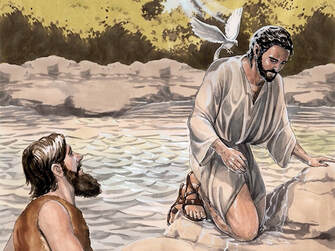 "You are My beloved Son" - - Used by Permission - Good News Productions International and College Press Publishing. Photo source: FreeBibleImages.org. "You are My beloved Son" - - Used by Permission - Good News Productions International and College Press Publishing. Photo source: FreeBibleImages.org.
Mark 1:9-11 - "In those days Jesus came from Nazareth in Galilee and was baptized by John in the Jordan. (10) Immediately coming up out of the water, He saw the heavens opening, and the Spirit like a dove descending upon Him; (11) and a voice came out of the heavens: 'You are My beloved Son, in You I am well-pleased.'" Also see Matthew 3:13-17 and Luke 3:21-22).
Testimony of John the Baptist about Jesus' Baptism
John 1:32-34 - "John testified saying, 'I have seen the Spirit descending as a dove out of heaven, and He remained upon Him. (33) I did not recognize Him, but He who sent me to baptize in water said to me, "He upon whom you see the Spirit descending and remaining upon Him, this is the One who baptizes in the Holy Spirit." (34) I myself have seen, and have testified that this is the Son of God.'"
Testimony of God the Father at Jesus' Transfiguration
Mark 9:2-7 - "Six days later, Jesus took with Him Peter and James and John, and brought them up on a high mountain by themselves. And He was transfigured before them; (3) and His garments became radiant and exceedingly white, as no launderer on earth can whiten them. (4) Elijah appeared to them along with Moses; and they were talking with Jesus. (5) Peter said to Jesus, 'Rabbi, it is good for us to be here; let us make three tabernacles, one for You, and one for Moses, and one for Elijah.' (6) For he did not know what to answer; for they became terrified. (7) Then a cloud formed, overshadowing them, and a voice came out of the cloud, 'This is My beloved Son, listen to Him!'" Also see Matthew 17:1-5 and Luke 9:28-35.
Testimony of the Apostle Peter about Jesus' Transfiguration
2 Peter 1:16-18 - "For we did not follow cleverly devised tales when we made known to you the power and coming of our Lord Jesus Christ, but we were eyewitnesses of His majesty. (17) For when He received honor and glory from God the Father, such an utterance as this was made to Him by the Majestic Glory, 'This is My beloved Son with whom I am well-pleased'-- (18) and we ourselves heard this utterance made from heaven when we were with Him on the holy mountain."
Explanation of the Angel Gabriel to Mary, the Mother of Jesus
Luke 1:30-35 - "The angel said to her, 'Do not be afraid, Mary; for you have found favor with God. (31) And behold, you will conceive in your womb and bear a son, and you shall name Him Jesus. (32) He will be great and will be called the Son of the Most High; and the Lord God will give Him the throne of His father David; (33) and He will reign over the house of Jacob forever, and His kingdom will have no end.' (34) Mary said to the angel, 'How can this be, since I am a virgin?' (35) The angel answered and said to her, 'The Holy Spirit will come upon you, and the power of the Most High will overshadow you; and for that reason the holy Child shall be called the Son of God.'"
Testimony of Jesus' Disciples in the Boat
Matthew 14:22-33 - "Immediately He made the disciples get into the boat and go ahead of Him to the other side, while He sent the crowds away. (23) After He had sent the crowds away, He went up on the mountain by Himself to pray; and when it was evening, He was there alone. (24) But the boat was already a long distance from the land, battered by the waves; for the wind was contrary. (25) And in the fourth watch of the night He came to them, walking on the sea. (26) When the disciples saw Him walking on the sea, they were terrified, and said, 'It is a ghost!' And they cried out in fear. (27) But immediately Jesus spoke to them, saying, 'Take courage, it is I; do not be afraid.' (28) Peter said to Him, 'Lord, if it is You, command me to come to You on the water.' (29) And He said, 'Come!' And Peter got out of the boat, and walked on the water and came toward Jesus. (30) But seeing the wind, he became frightened, and beginning to sink, he cried out, 'Lord, save me!' (31) Immediately Jesus stretched out His hand and took hold of him, and said to him, 'You of little faith, why did you doubt?' (32) When they got into the boat, the wind stopped. (33) And those who were in the boat worshiped Him, saying, 'You are certainly God’s Son!'"
Testimony of Jesus at His Trial
Luke 22:66-71 - "When it was day, the Council of elders of the people assembled, both chief priests and scribes, and they led Him away to their council chamber, saying, (67) 'If You are the Christ, tell us.' But He said to them, 'If I tell you, you will not believe; (68) and if I ask a question, you will not answer. (69) But from now on the Son of Man will be seated at the right hand of the power of God.' (70) And they all said, 'Are You the Son of God, then?' And He said to them, 'Yes, I am.' (71) Then they said, 'What further need do we have of testimony? For we have heard it ourselves from His own mouth.'"
Testimony of the Roman Centurion and Soldiers Upon Jesus' Death
Mark 15:39 - "When the centurion, who was standing right in front of Him, saw the way He breathed His last, he said, 'Truly this man was the Son of God!'"
Matthew 27:54 - "Now the centurion, and those who were with him keeping guard over Jesus, when they saw the earthquake and the things that were happening, became very frightened and said, 'Truly this was the Son of God!'"
Wrap Up
It's really simple. Either you believe that Jesus Christ is the Son of God or you don't believe it. If you believe Jesus was just a great teacher, or a great prophet, but not the Son of God, then you are calling the witnesses and Jesus himself liars - in which case, his being a "great teacher" is not an option. Once you do believe that Jesus is who he says he is, then the great truths of the Bible will fall into place for you, and your life will be changed for the better - eternally.
Apply
Believe in (put your faith in, trust in, put your confidence in) Jesus Christ, the Son of God. Believe that Jesus is who he said he is. Believe the eyewitness accounts that Jesus is the Son of God.
For Additional Reading
"For I am not ashamed of the gospel, for it is the power of God for salvation to everyone who believes, to the Jew first and also to the Greek." (Romans 1:16)
This lesson explains the meaning of these phrases from the Apostle Paul in Romans 1:16: "For I am not ashamed of the gospel," "for it is the power of God for salvation to everyone who believes," and "to the Jew first and also to the Greek."
1. "I Am Not Ashamed of the Gospel"
Definitions:
Ashamed -- In Romans 1:16 the Greek word for ashamed is epaischunomai (pronounced ep-ahee-skhoo'-nom-ahee) (Ref. 1 - HELPS Word-studies). This word means to be disgraced, or personally humiliated like someone being "singled out" because they misplaced their confidence or support (Ref. 1). The world thought that Paul should be ashamed. To the Jews, "the thought of a crucified Messiah" was "a revolting folly" (Ref. 2 - Pulpit Commentary on 1 Corinthians 1:18). To the Greeks the worship of a crucified wrongdoer was a detestable superstition (Ref. 2). In contrast with the Jews and Greeks who thought that Paul should be ashamed, Paul in no way felt ashamed of his message about Jesus Christ. Paul did not shrink away from preaching Christ; instead, he glorified in it (Romans 1:15). As believers in Christ -- like Paul -- we should not be ashamed of our Lord and Savior. Likewise, we should not be ashamed to present the good news of salvation in Christ to others. Paul encouraged his protégé, Timothy, "Do not be ashamed of the testimony of our Lord or of me His prisoner, but join with me in suffering for the gospel according to the power of God" (2 Timothy 1:8).
Gospel -- The Greek word for gospel in Romans 1:16 is euaggelion (pronounced yoo-ang-ghel'-ee-on). Euaggelion means God's good news (Ref. 3). At the beginning of Jesus' ministry, the gospel was the glad tidings of the kingdom of God soon to be set up (Mark 1:14-15, Ref. 3 - Thayer's Greek Lexicon). After Jesus' death and resurrection, the gospel was (and still is) the good news that Jesus Christ has paid the penalty for our sin through his sacrificial death on the cross. When we repent of our sins and put our faith and trust in him, we receive forgiveness of our sins and the gift of eternal life. See Mark 1:14-15, Mark 10:45, John 3:16, Romans 5:8, Romans 6:23, Ephesians 2:8-9, and 1 John 1:9.
2. "For It Is the Power of God for Salvation to Everyone Who Believes"
Definitions:
Power -- The Greek word for power in Romans 1:16 is dunamis (pronounced doo'-nam-is). Dunamis means (miraculous) power, might, strength, and ability to perform (Ref. 4). Kenneth S. Wuest adds that "Dunamis is power, natural ability, inherent power residing in a thing by virtue of its nature, or, power which a person or living thing exerts or puts forth. The gospel is the inherent, omnipotent power of God operating in the salvation of a lost soul who accepts it" (Ref. 5 below). The Apostle Paul wrote to believers at Corinth, "For the word of the cross is foolishness to those who are perishing, but to us who are being saved it is the power of God" (1 Corinthians 1:18).
Salvation -- The Greek word for salvation is sótéria (pronounced so-tay-ree'-ah). HELPS Word-studies defines sótéria as "God's rescue which delivers believers out of destruction and into His safety" (Ref. 6).
Salvation is entirely God's doing, not something that we achieve by works or by "trying to live a good life" without Christ. Paul writes, "For by grace you have been saved through faith; and that not of yourselves, it is the gift of God; not as a result of works, so that no one may boast" (Ephesians 2:8-9). Believe -- The Greek word for believe is pisteuó (pronounced pist-yoo'-o). Pisteuó means to believe, to have faith in, to trust in, and to place confidence in (Ref. 7). The person who believes in Christ is a person who has put their faith, trust, and confidence in Christ. The phrase "to everyone who believes" describes the condition, or terms, on which God confers salvation (Ref. 8). God confers salvation on sinners who by faith put their trust and confidence in God's Son, Jesus Christ. 3. "To the Jew First and Also to the Greek"
The phrase "to the Jew first and also to the Greek" means that God then and now offers salvation to all people, to Jews and to all who are not Jews (Ref. 9). God's offer of salvation to all people is consistent with John 3:16, "For God so loved the world, that He gave His only Son, so that everyone who believes in Him will not perish, but have eternal life."
Salvation is the present possession of all people who believe in (have faith, trust, and confidence in) Jesus Christ (Acts 16:30-31, Mark 16:15-16, Acts 8:34-39).
The world thought then (and still thinks now) that Paul's message about Christ was foolishness (1 Corinthians 1:18, Ref. 10). Yet, Paul was neither disgraced nor ashamed of the gospel. Likewise, as believers in Christ, we should never be ashamed of the gospel. The gospel of Jesus Christ is the power of God for salvation to everyone who believes. Jesus Christ, through his sacrificial death on the cross, has procured forgiveness of sins and provides eternal life to all who put their faith and trust in him.
Apply. Show by your words and your deeds that you are not ashamed of the gospel of Jesus Christ.
Related Lessons
"The Word of the Cross - Foolishness or Power?" (1 Corinthians 1:18) "What Does 'To be Saved' Mean in the New Testament?" (Acts 16:31) "God's Offer of Salvation and Eternal Life" (John 3:16) "Stand Firm in the Faith" (1 Corinthians 16:13-14)
References
1. https://biblehub.com/greek/1870.htm 2. https://biblehub.com/commentaries/pulpit/1_corinthians/1.htm (Pulpit Commentary on 1 Corinthians 1:18) 3. https://biblehub.com/greek/2098.htm 4. https://biblehub.com/greek/1411.htm 5. Wuest's Word Studies from the Greek New Testament, Kenneth S. Wuest, Wm. B. Eerdmans Publishing Company, 1973, Volume One, commentary on Romans 1:16 6. https://biblehub.com/greek/4991.htm 7. https://biblehub.com/greek/4100.htm 8. https://biblehub.com/commentaries/barnes/romans/1.htm (Notes on the Bible by Albert Barnes [1834] - Romans 1:16) 9. https://biblehub.com/commentaries/ellicott/romans/1.htm 10. http://www.ScriptureWay.com/home/the-word-of-the-cross-foolishness-or-power
"But as many as received Him, to them He gave the right to become children of God, to those who believe in His name: who were born, not of blood, nor of the will of the flesh, nor of the will of man, but of God." (John 1:12-13 NKJV)
Becoming a child of God is both a starting point and a life-long process -- a starting point when a person receives Christ and a process of growth from spiritual infancy to spiritual maturity.
This lesson is the first in a series on "The Children of God."
Consider. Have you become a child of God? Are you growing and increasing in spiritual maturity as a child of God?
The Biblical Requirement for Becoming a Child of God Is Receiving Christ
John, Jesus' disciple, wrote "But as many as received Him, to them He gave the right to become children of God, to those who believe in His name" (John 1:12). Receiving [accepting] Jesus Christ is the biblical condition for an individual becoming a child of God (Ref. 1, Figure 1 below). Becoming a child of God starts when a person receives Christ. Receiving Jesus Christ individually contrasts with the great mass of people (including the scribes and Pharisees) who have rejected Christ. The words, "to those who believe in his name," further explain the condition for becoming a child of God. A person receives Jesus by believing he is true - by trusting in, adhering to, and relying on him. By God's grace, a person can become a child of God by believing in Jesus Christ, regardless of that person's demographic or national identity. 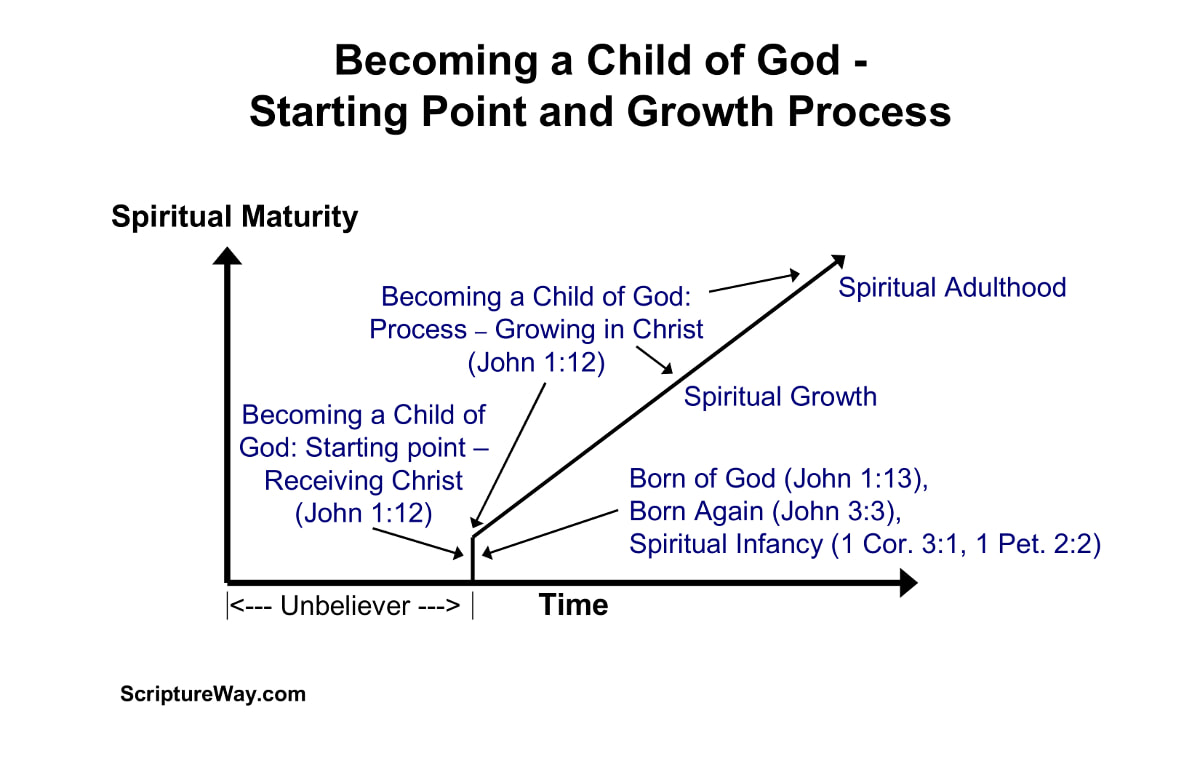 Figure 1: Becoming a Child of God - Both a Starting Point and a Growth Process Figure 1: Becoming a Child of God - Both a Starting Point and a Growth Process
Becoming a Child of God Begins When We Are Born of God
John continues the description of children of God in verse 13, "... who were born, not of blood, nor of the will of the flesh, nor of the will of man, but of God" (John 1:13). Becoming a child of God requires being born of God, not by the will of man [Greek anér -- a husband] (Ref. 2).
Although all human beings are created in the image of God (Genesis 1:26), not all human beings are children of God in the born again sense described by John. Jesus said to Nicodemus, "Truly, truly, I say to you, unless one is born again he cannot see the kingdom of God" (John 3:3). John also wrote, "Everyone who believes that Jesus is the Christ has been born of God, and everyone who loves the Father loves the child born of Him" (1 John 5:1). Becoming a Child of God Also Is a Life-Long Growth Process
When we first receive Christ, we are spiritual infants regardless of our physical age. Becoming a spiritually mature child of God requires growth. In John 1:12, the Greek word for become in "become children of God" means to emerge or transition from one condition to another (Ref. 3). Becoming a child of God requires growing in Christ over time so we transition from spiritual infancy to spiritual maturity (Figure 1). The Apostle Peter wrote, "Therefore, rid yourselves of all malice and all deceit and hypocrisy and envy and all slander, and like newborn babies, long for the pure milk of the word, so that by it you may grow in respect to salvation" (1 Peter 2:1-2).
Becoming a Child of God Is a Privilege
John writes "But as many as received Him, to them He gave the right [privilege, authority] to become children of God" (John 1:12, brackets added, Ref. 4). Becoming a child of God is a privilege far more so than being the child of any human being (Ref. 5). Becoming a child of God is God's blessing; it is not something we earn (Ephesians 2:8). Jesus gives this favor, this privilege, to those who believe in his name (John 1:12).
Apply. Be sure that you a child of God. Believe in the name of Jesus. Trust him. Have faith in him. Grow to maturity as a child of God. Long for, study, and apply the word of God to your life. Love and grow in your relationship with your heavenly Father. As a child of God, love and serve others in the name of Jesus.
Related Topics
"Characteristics of a Child of God - Part 1" (Matthew 7:16) "Characteristics of a Child of God - Part 2" (Matthew 5:16) "Our Adoption as God's Children" (Galatians 4:4-5) |
Daily Bible Verse(Click the link above) AuthorMr. Whitney V. Myers. Christian. For more information, please visit the Author Page. Posting ScheduleI plan to provide new postings about once a month. Planned Topics(subject to change) Recent Posts(most recent three months) Popular Posts(top 10) Categories
All
Archives
July 2024
|
|
Copyright 2018-2024 Whitney V. Myers |
Listed in Feedspot's Top 100 Bible Study Blogs and Websites |


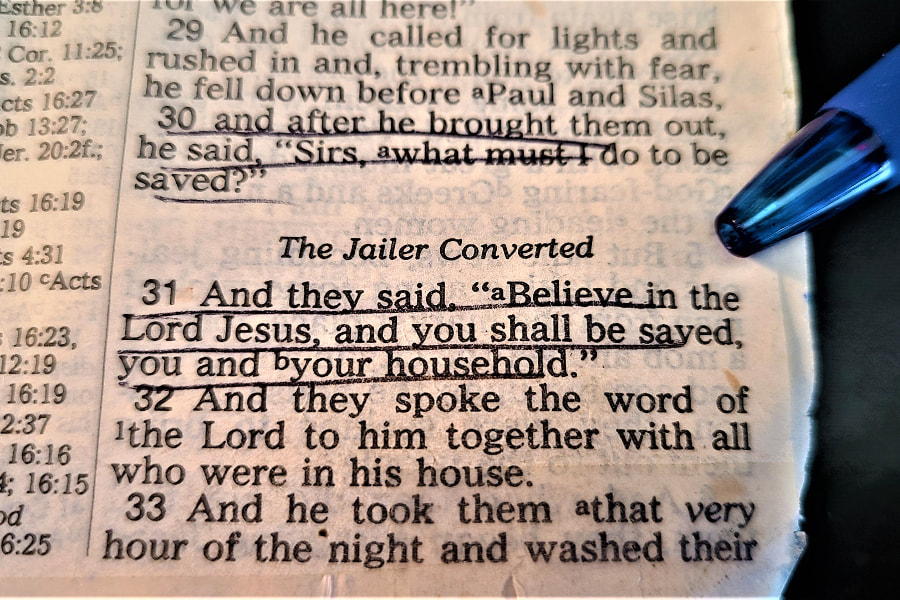
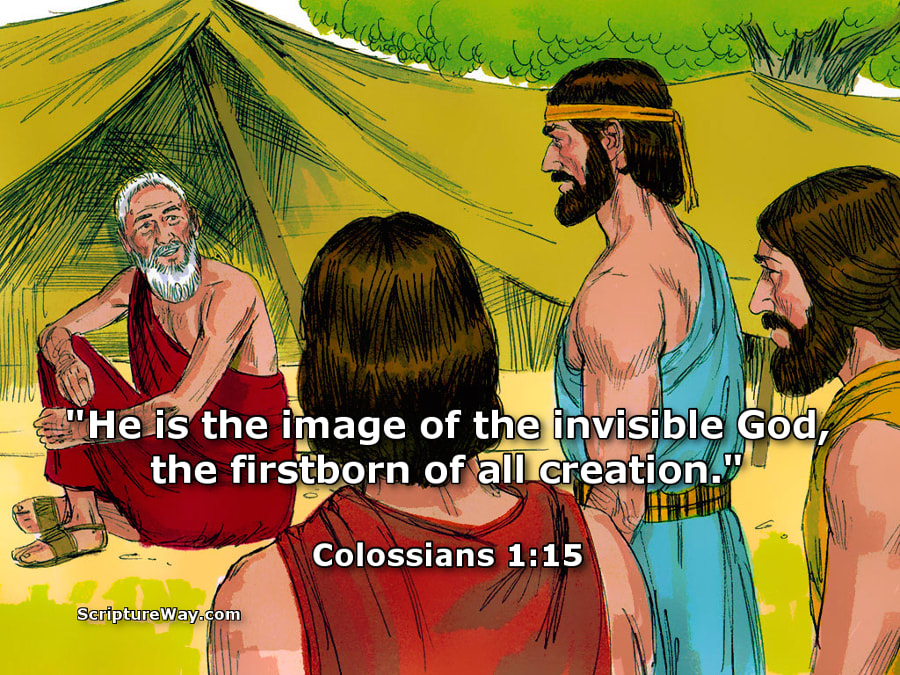
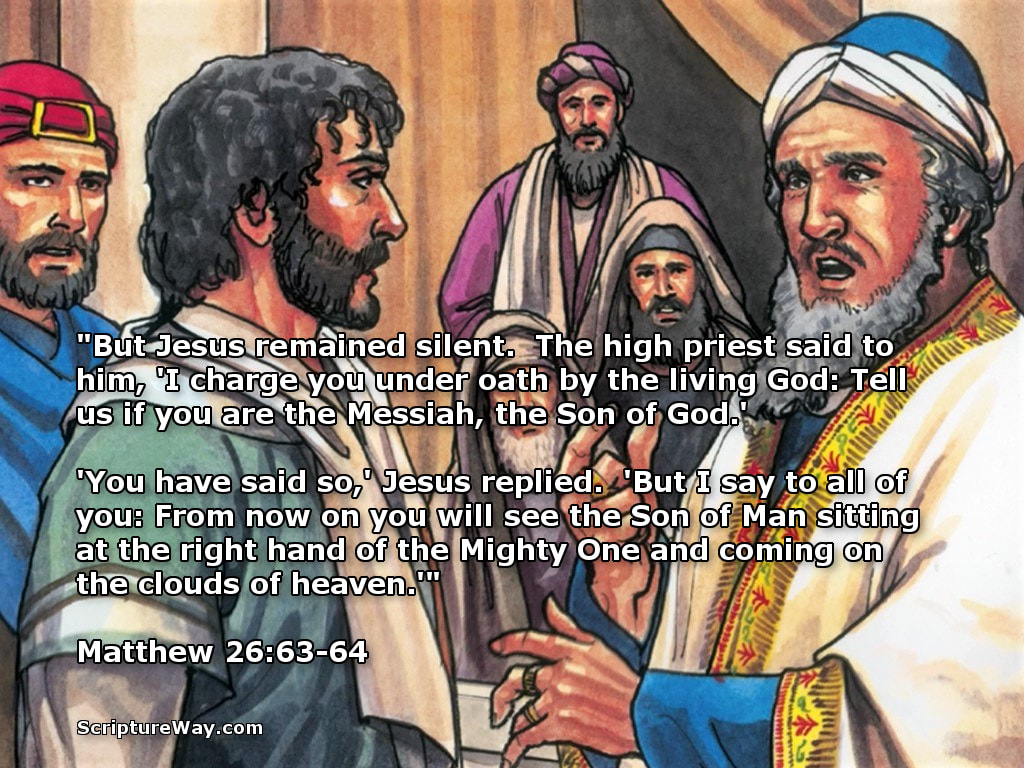
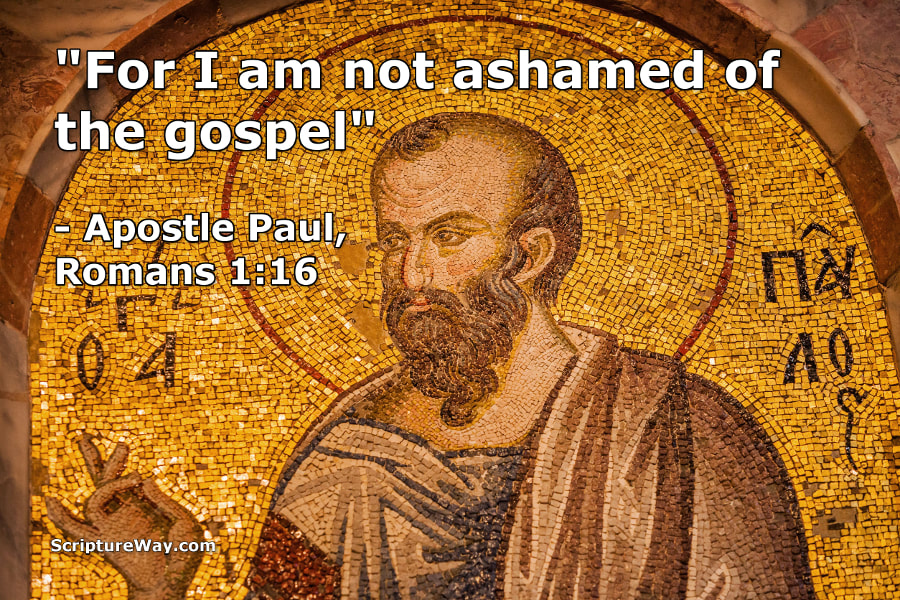

 RSS Feed
RSS Feed
